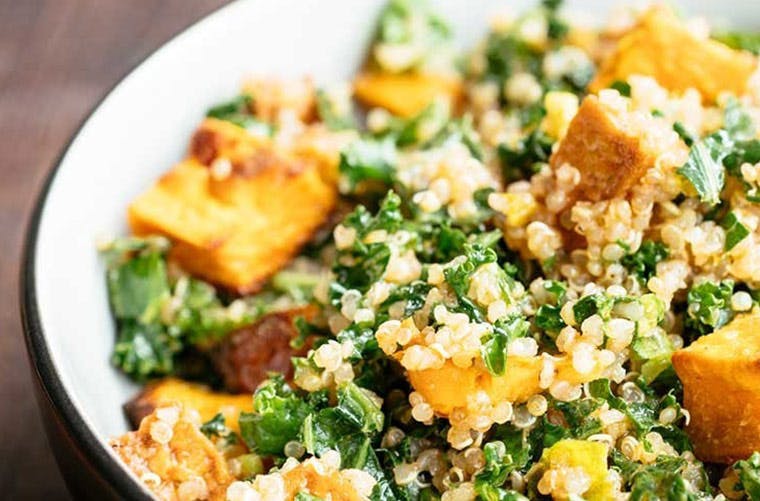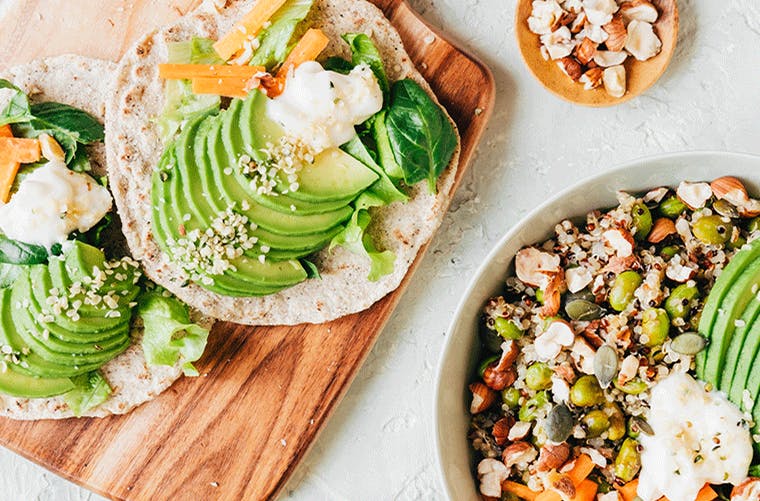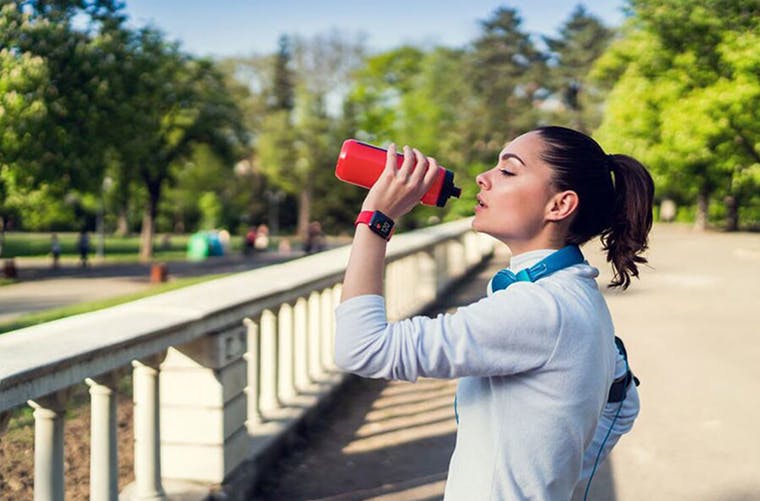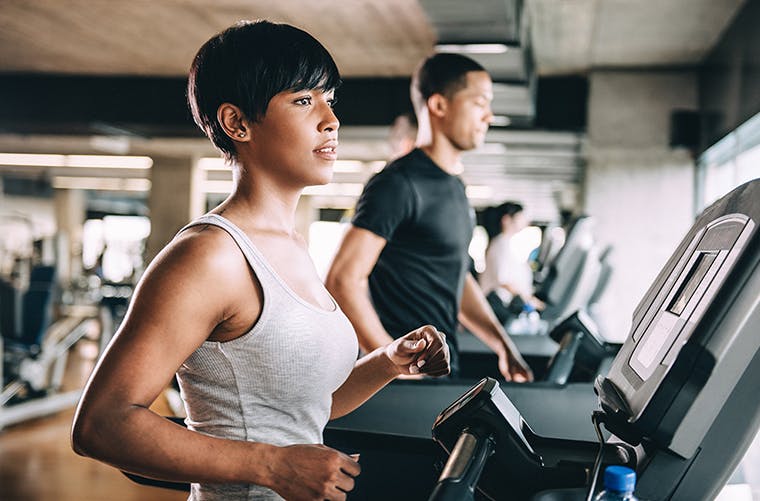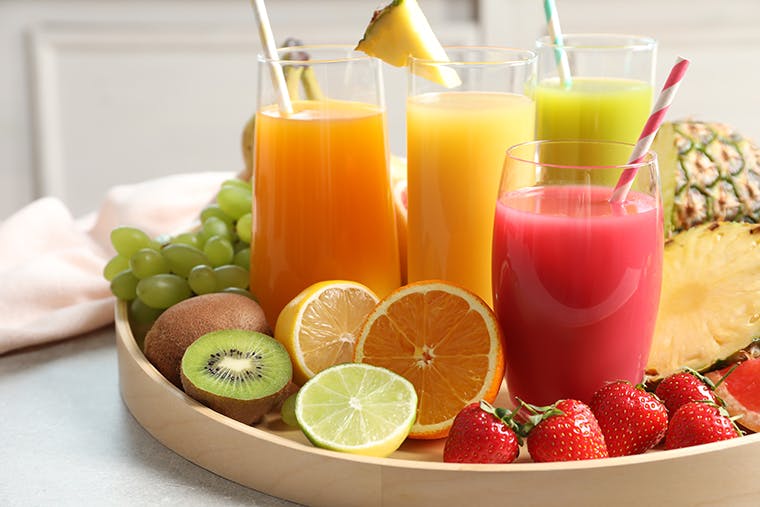The Most Important Vitamins and Minerals For Energy Support
Feel drained and need a pick-me up? Certain vitamins and minerals can help provide you energy to get through your day. Learn about the vitamins and minerals you can use to help boost your energy and stay active and productive.
How Does Your Body Make Energy?
Before we delve into the best sources for energy, it’s important to understand how “energy” is produced in your body. When we consume food, cells use micronutrients like sugars, proteins, and fats to produce energy in the form of ATP.1 Within each cell, macronutrients – such as glucose, fatty acids, and certain amino acids – head to the mitochondria where they undergo complex reactions to be converted into energy, referred to as adenosine triphosphate (ATP).1 To effectively convert calories into ATP, these complex reactions require several vitamins and nutrients like:2
Vitamin B
All B vitamins, except for folate, are involved within the process of energy production.1 Vitamin B1 converts pyruvate and amino acids into energy.1 Vitamin B2 is essential for breaking down fats, carbohydrates, and proteins.1 Vitamin B3 helps to extract energy from glucose.1 Vitamins B5, B6, and B8 are all essential for other aspects of energy production – such as the synthesis of fatty acids and converting certain compounds into energy.1 If you’re trying to add more vitamin B into your diet, viable sources include poultry, meat, watermelon, fish, cheese, eggs, cereal and vegetables.2
Vitamin C
Vitamin C plays a vital role in energy metabolism and helping our body function properly. It synthesizes carnitine, which helps to transport fatty acids into the mitochondria.1 Great sources of vitamin C include citrus fruits, broccoli, bell peppers, spinach, tomatoes, Brussel sprouts, potatoes and strawberries.2
Magnesium
Magnesium is a mineral that plays a slightly different role than the vitamins previously mentioned. Rather than catalyzing ATP production or transporting, it is essential for ATP to function properly and store energy in our cells.1 Magnesium is present in several foods like spinach, broccoli, legumes and whole wheat bread.2
Iron
Iron helps to ensure that your body has enough energy to get through the day. Iron is important for enzymes involved in cellular energy production, such as cytochromes, which help with ATP synthesis.1 You can get an adequate supply of iron through red meat, eggs, poultry, vegetables and fortified bread.2
What are other ways you can improve your energy levels?
In addition to the vitamins and minerals that directly aid in ATP production, there are other ways you can help increase your energy. If you’re tired, try identifying what’s causing it. If you often feel easily fatigued, consult with your doctor first. In addition, it may be beneficial to explore additional avenues to improve your energy levels.
For example, engaging in regular exercise can significantly contribute to improving your sleep quality.3 Exercise aids in the circulation of oxygen, provides your cells with more energy to utilize, and can elevate dopamine levels in your body.3
Stress is a notorious energy drainer, so incorporating relaxation techniques and establishing support systems, such as confiding in a friend or seeking guidance from a psychotherapist, can effectively reduce stress levels.4 If you consume alcohol or smoke, it can adversely affect your sleep patterns and diminish your energy levels.3 Additionally, feeling fatigued can often be one of the first indications of dehydration, so make sure you’re drinking enough water.3
To identify the source of your fatigue, consult with your doctor or a licensed nutritionist. Your licensed medical professional may suggest taking supplements. If they recommend additional vitamin C, consider Emergen-C Crystals as a convenient source.* It’s also packed with antioxidants and vitamin B, spanoffering immune support while you’re on the go.*
Ensuring that your body receives essential vitamins and minerals, such as vitamin B, C, and magnesium, may help sustain energy levels. Incorporate these crucial vitamins and minerals into your diet so you can seize the day with vigor and vitality.
*These statements have not been evaluated by the Food and Drug Administration. These products are not intended to diagnose, treat, cure or prevent any disease.
Source Citations:
1. Vitamins and Minerals for Energy, Fatigue and Cognition: A Narrative Review of the Biochemical and Clinical Evidence. Nutrients PMC. https://www.ncbi.nlm.nih.gov/pmc/articles/PMC7019700/
2. The Best Foods for Vitamins and Minerals. Harvard Health. https://www.health.harvard.edu/staying-healthy/the-best-foods-for-vitamins-and-minerals
3. 9 Tips to Boost Your Energy Naturally. Harvard Health. https://www.health.harvard.edu/healthbeat/9-tips-to-boost-your-energy-naturally





